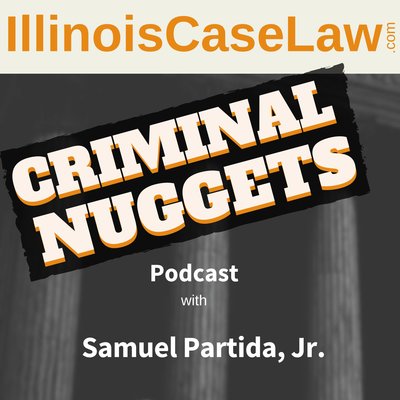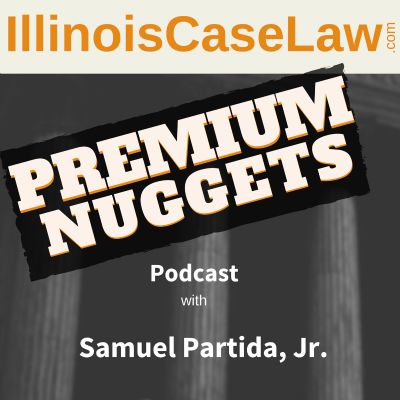Nov 18, 2014
http://IllinoisCaseLaw.com/conditions-of-probation-challenged-by-this-convicted-police-officer
The conditions of probation imposed in this probation case included
an order that Defendant pay his child support. The Defendant
objected to this. He argued that the court did not have authority
to make child support one of the conditions of probation. Oh yea,
Defendant was a cop.
People v. Goossens, 2014 IL App (3d) 120680 (09/30/2014) is described in Podcast Episode 029 of the Criminal Nuggets Podcast.
Facts
This police sergeant was convicted and placed on probation for felony intimidation. The judge ordered him to get current with his child support. Sergeant only appealed the child support thing.
Everyone wants to know what he did, right? Well, he apparently threatened not to respond to 911 calls from a particular dragway while two former police officers worked there.
Intimidation falls under the Illinois Criminal Code section 720 ILCS 5/12-6(a)(6). This is a class 3 Felony with a term of probation being no more than 30 months per 730 ILCS 5/5-4.5-40(d).
Issue
Was the child support order unauthorized because it did not reasonably relate to his crime?
Law
Illinois Compiled statutes Unified Code of Corrections section 730 ILCS 5/5-6-3(a), entitled Conditions of Probation,” lists several mandatory conditions of probation. While section 5-6-3(b) lists some conditions that the court may impose at its discretion.
Specifically the code says:
“(b) The Court may in addition to other reasonable conditions relating to
the nature of the offense or the rehabilitation of the defendant as determined for
each defendant in the proper discretion of the Court require that the person:
* * *(6) support his dependents[.]”
Analysis
So what does this Conditions of Probation section mean?
One interpretation is that the enumerated conditions may be ordered at the court’s discretion without any other type of limitation. If the court wishes to order unlisted conditions, it may do so if the unlisted conditions reasonably relate to the charged offense.
The other interpretation has been adopted by the the Fourth Appellate District.
This reading of the statute says that the court may only order the enumerated “discretionary” conditions if and only if those conditions relate -
“to the nature of the offense or the rehabilitation of the defendant”. 730 ILCS 5/5-6-3(b)(6).
Unfortunately, Defendant was not in the Fourth District. His case was in the Third District.
Holding
The sergeant has to pay his child support as a condition of probation.
The court said that -
“In so holding, we acknowledge our disagreement with the Fourth District’s holding in People v. Campbell, 325 Ill. App. 3d 569, 571 (2001), that the plain meaning of section 5-6-3(b) of the Code is that all conditions of a sentence of probation or conditional discharge must be related to the specific offense for which the defendant is sentenced. Thus, we hold that since the condition that the defendant support his dependents is specifically enumerated in section 5-6-3(b) of the Code, the trial court’s imposition of the condition that the defendant become current on his child support was authorized by statute, without a finding that the condition was reasonably related to the underlying offense.” ¶ 9.
Unorthodox Conditions of Probation
This case gives us a place to start if we ever find ourselves in a situation where a judge has ordered some “unorthodox” conditions of Probation.
For example, there may be a statutory challenge to a sentencing order requiring Defendant to:
- Wash Police Cars
- Wear a “I am a Thief” Sign in Public
- Take His Wife Out to Dinner
- Attend PTA Meetings



